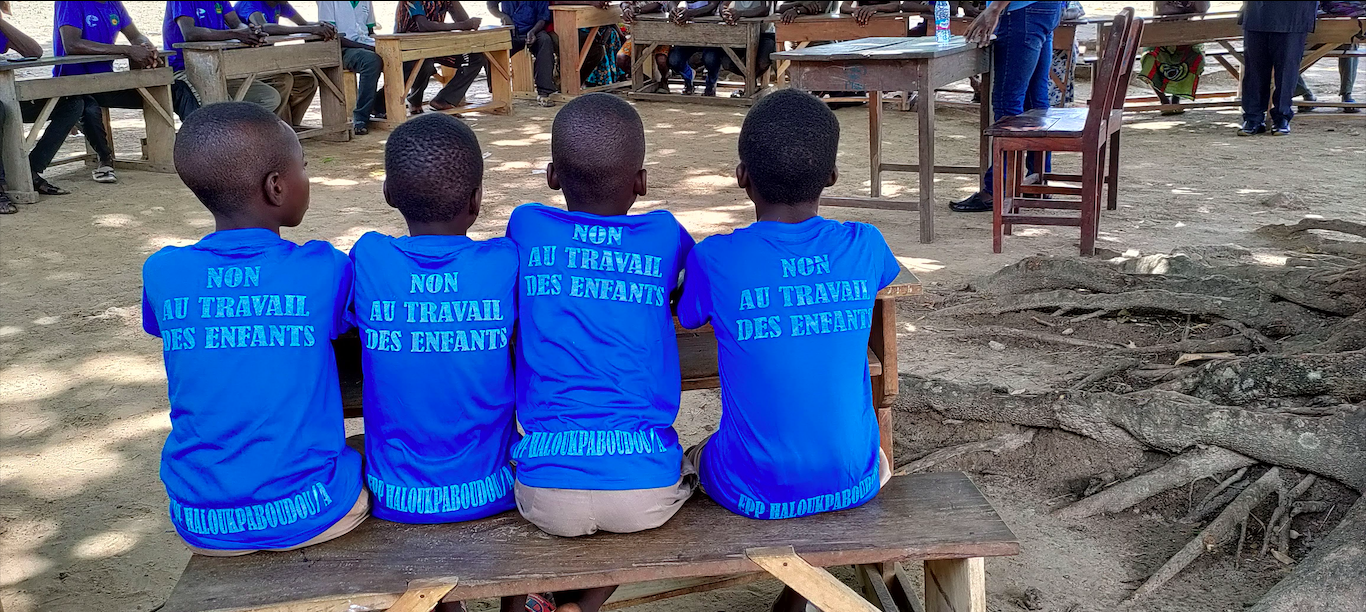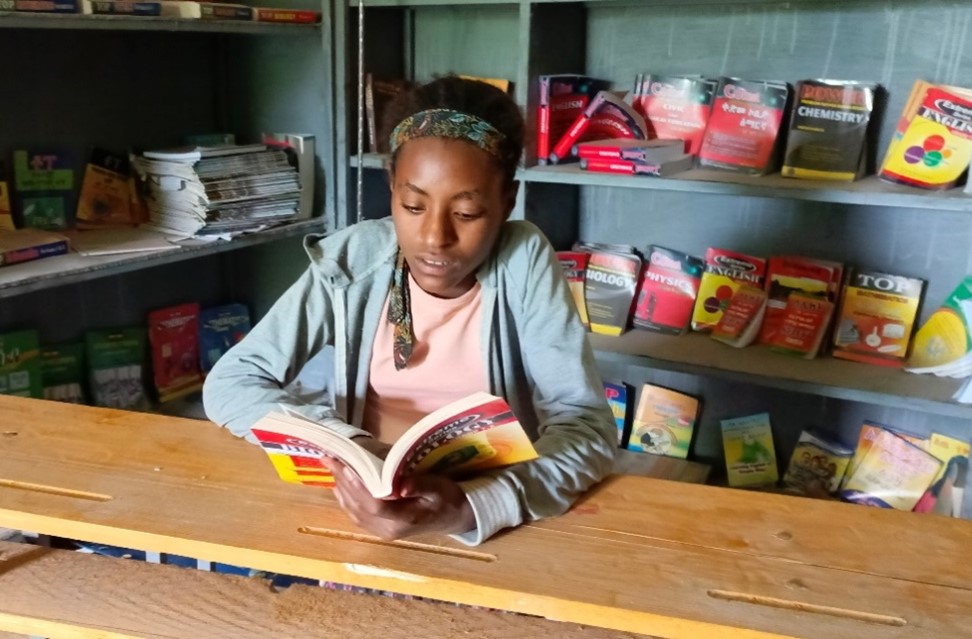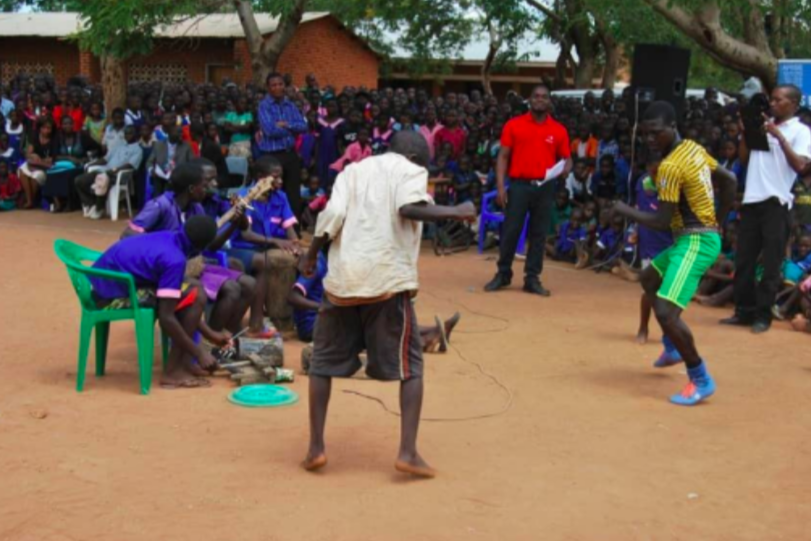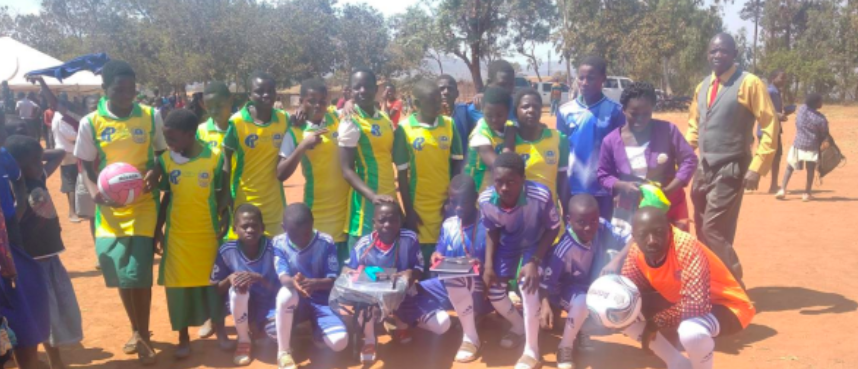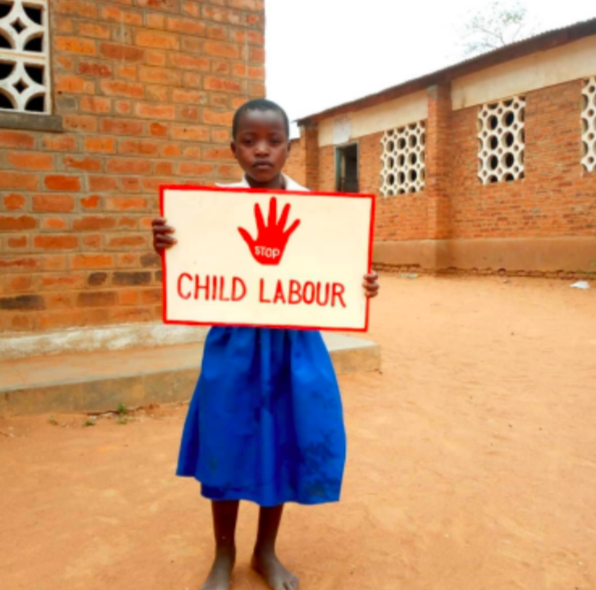FESEN’s pilot project began in 2019 with training for teachers, school management committees and community leaders. A main element of the training is the distinction between prohibited child labour and socialising work. The latter does not interfere negatively with a child’s schooling, health or personal development.
These training sessions open the eyes of teachers and principals to the role they can play in eradicating child labour in their communities. Panadèma Bayabenze, the teacher in charge of the FESEN project at Mèwèdè village primary school, explains:
“As soon as a pupil drops out of school, we go and meet their family. Before this union project, we were not as responsive as we have become. Parents often don’t realise the dangers their children may face when they drop out of school. We also use every school general assembly, when all the parents are together, to raise their awareness on this.”
Raising community awareness of the importance of education is one of the keys to the success of the project. As a Mèwèdè village school management committee member says:
“Many parents have never been to school and therefore don’t know the value of education. The FESEN workshop gave us new arguments when we talked to them. For example, you don’t just go to school in the hope of becoming a civil servant, you also go for yourself, for your personal development and even to become a better farmer.”
FESEN’s project involves the setting up of village committees to combat child labour. The committee members are the most influential people, such as village chiefs, and those most interested in becoming involved on behalf of children. The committees help teachers raise awareness of the risks of children dropping out of school.
According to Sangbalao Pouwèdéo, Toukoudjou village chief:
“The project has made us aware of the need for every child to stay in school. Before, when a child dropped out of school, we spoke to the parents, but only informally. After our training, it’s more systematic. When a child drops out, we go and find the parents and raise awareness. A lot of children have come back to school as a result.”
FESEN is also training teachers in the project area on national and international standards relating to children’s rights, and on more attractive and inclusive teaching methods. There is emphasis on the abandonment of corporal punishment. This training is particularly useful for community teachers recruited from the villages to make up for the shortage of qualified teachers.
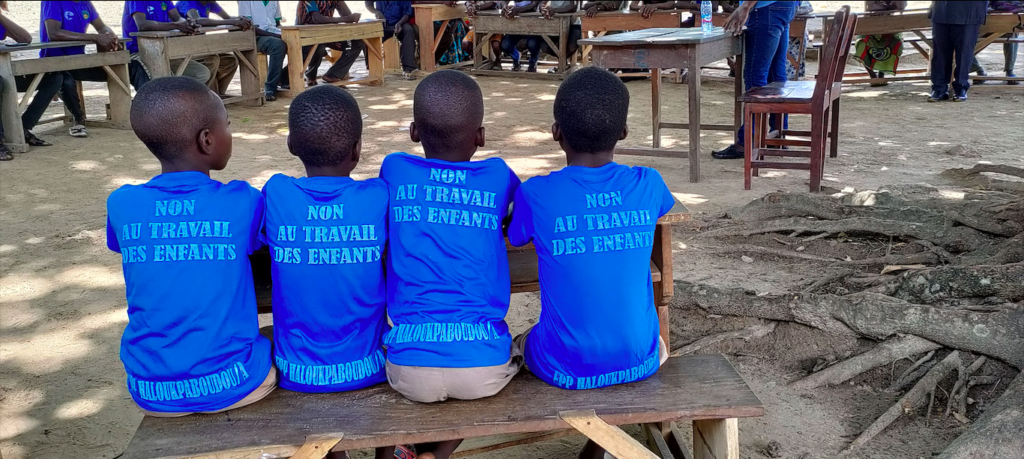
Children in the project schools are encouraged to join anti-child-labour clubs, which FESEN-trained teachers supervise. Pupils who are members of these clubs develop artistic activities, such as street theatre, songs, dances and poems, that raise awareness of children’s rights and the importance of education. Through their personal contacts, the pupils help to convince working children in the community to return to school.
In Panadèma Bayabenze’s words:
“When a member of the club notices that a child is being exploited through labour, he or she informs the teachers, or a member of the village committee to combat child labour, and we then take over from that pupil to contact the child’s family.”
Between 2019 and 2023, the FESEN project enabled 137 children to leave work and return to school. All these children benefited from remedial classes to catch up with other children of their age. The project involved 11 schools in this period. FESEN and its international partners are now (in 2024) extending it to 9 additional schools in the same region.
Over the next two years, FESEN will also step up its advocacy for the development of school canteens. The first canteen, set up in the Mèwèdè school following the mobilisation of teachers and the community, now feeds 195 children every day. It plays a key role in attracting the poorest children to school and preventing them from dropping out. Some pupils have to walk several kilometrers through the bush to school, and they drop out more easily if they have no lunch.
The development of this project has enabled FESEN to strengthen its social dialogue with the local authorities. In the canton of Kazaboua, the authorities have extended FESEN’s pilot project from four schools to the whole canton.
As Lanto Akaba-Abalo, chief of Kazaboua canton, puts it:
“This project had achieved impressive results in the pilot schools, including a drastic reduction in school dropping-out. So we have set up village committees, raised awareness and trained the headteachers of the six other schools in the canton to follow suit. Today, not a single child drops out of the 10 primary schools in my canton. The awareness raising carried out by everyone has also helped to reduce the number of cases of child abuse throughout the canton.”
Claire’s story
Claire, aged 9, lives in the village of Mèwèdè and dropped out of school at the beginning of the 2023-24 school year, the start of her second year of primary school.
The village committee to combat child labour contacted the teacher trained by FESEN in Claire’s school to explain why she had dropped out. Claire’s mother had left home to go to live in the north of the country, leaving her alone with her two brothers aged 12 and 13. Claire’s father had already left the family earlier. She has no other relatives in the village. With no family pressure, Claire left school to devote herself to household chores.
Panadèma Bayabenze, who manages the FESEN project at the Mèwèdè school, went to Claire’s home. He spoke to her gently, without reproach, based on the advice he had received on FESEN’s training course. He bought Claire a notebook and convinced her to come back to school.
“The school canteen we developed as a result of the FESEN project was a powerful argument in convincing Claire to come back to school,” says Panadèma. “Here, at least, she can be sure of having a good meal every day.”

